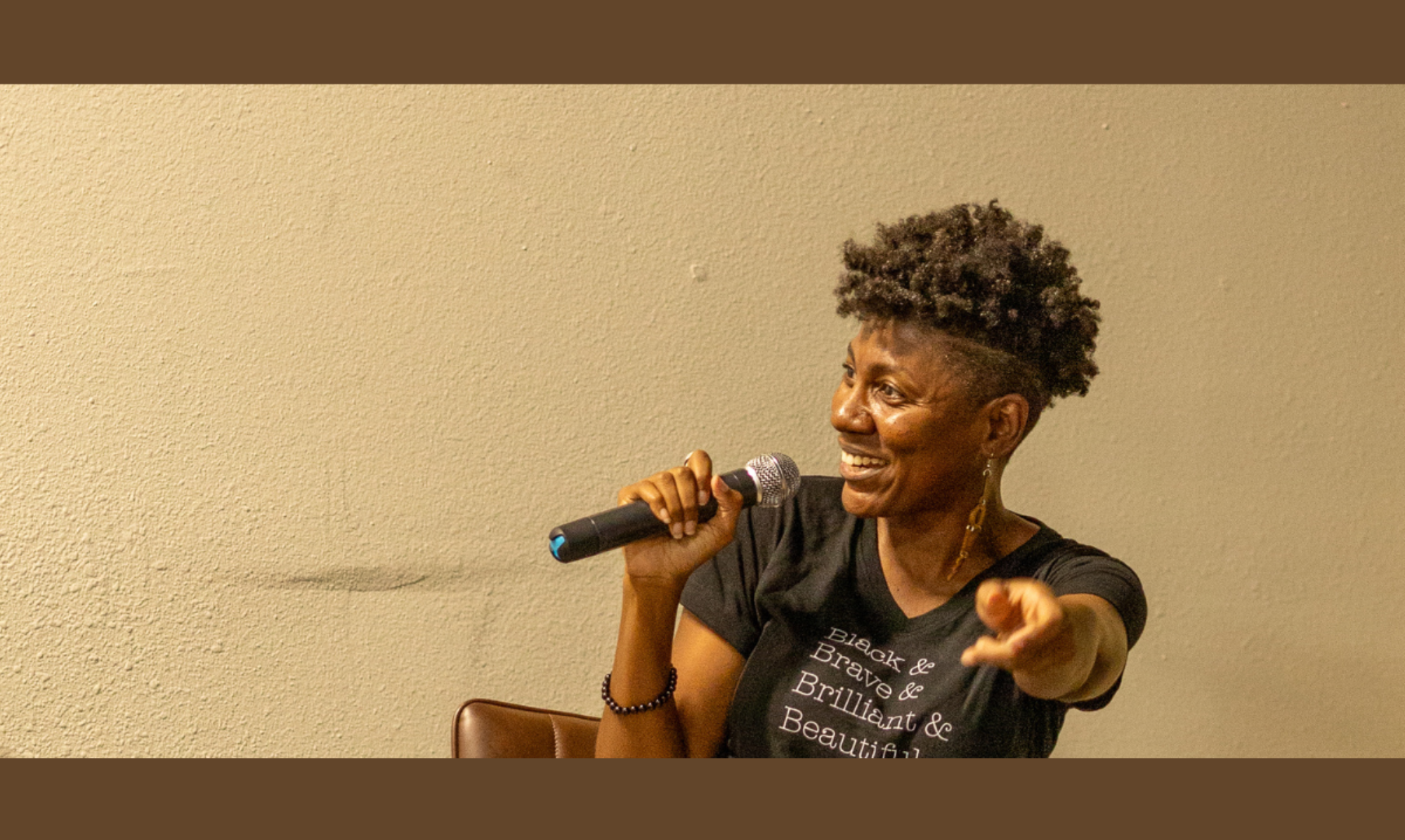Standing in the lobby of a movie theatre near my home, preparing to see the blockbuster hit The Butler, I noticed a movie poster for the upcoming movie Baggage Claim. The poster was a perfect example of how colorism in the media affects women and men differently.
Though this has been blatant for years (see my fave example, Coming to America), the idea was fresh on my mind because I’d recently read this post by Anti-Intellect where he writes:
“In the minds of many Blacks who have embraced white supremacist thinking, light skinned Black women represent both idealized beauty and femininity, and therefore are always “in style”…. We are much more comfortable with dark skinned men than we are with dark skinned women. A dark skinned man can be seen as macho, rugged, rough; all things affirming to his masculinity, and therefore appealing in the eyes of Black men and women.”
Above Anti-Intellect’s post is a picture of Idris Elba with the caption, “no female equivalent,” meaning that for all of the dark skinned male actors lauded for their physical beauty, there’s no dark skinned female actress with the same status. Of course we can all point to Gabrielle Union as the exception, but that lone example isn’t enough to prove that all is equitable.
In the most basic terms, none of the four women on the Baggage Claim movie poster were darker than a paper bag, and all but one of the men were. In fact, most of the men on the poster are known for their very dark “chocolate” skin.
The primary female characters are Jill Scott, La La Anthony, Tia Mowry, and the lead character is Paula Patton. The male characters, however, are Borris Kodjoe, Trey Songz, Taye Diggs, Derek Luke, and Djimon Hounsou. If you’re familiar with the actors, you should already be able to see the stark contrast between male and female characters. If not, here’s the poster:

Again, this isn’t an issue specific to this movie. It’s simply the standard in Hollywood. In fact, one of the most respected and successful male actors of all time, who happens to be dark skinned, made statements that affirm colorism as the norm in Hollywood.
Denzel Washington revealed in a roundtable with The Hollywood Reporter the advice he gives to his daughter, who’s an aspiring actress at NYU:
“I tell my daughter: ‘You’re black, you’re a woman, and you’re dark skinned at that. So you have to be a triple, quadruple threat…. Look at Viola Davis. That’s who you want to be. You want to be her. Forget about the little pretty girls because … if you’re relying on that, when you hit 40, you’re out the door. You better have some chops.'”
The male actors in this roundtable seem to mostly agree that Hollywood is tougher for women in general, regardless of race or skin tone. But that’s no surprise because Hollywood reflects the patriarchy that most of the world has been built on. And in such a world, it also makes sense that colorism would affect women and men differently.
Many people have spoken and written about the excessive pressure put on women to be physically attractive according to mainstream standards, while men experience that pressure a whole lot less.
According to The Mastercopy, other successful men in the media recognize the double standard as well:
“Speaking about the inspiration behind [‘Crooked Smile’] J. Cole admitted that he has received nasty comments about his looks to the point where they have played on his mind, but he said that as a male artist, he is only under a small amount of pressure when compared to his female counterparts.
‘I feel sorry for women in the music business. It’s not designed for the best talents to rise up. It has to be a combination of talent and what’s considered beauty. Women in life period, I don’t understand how they can deal with all the pressures…
‘As a man I don’t have to do anything. I can throw on a t-shirt and some pants. I still have pressure, … but nothing compared to what a woman has to go through. Its like a cycle, a female artist doing that makes the girl at home feel like she has to spend her time doing the same.'”
Speaking of rappers, even though J. Cole has recently said that his lighter skin may have contributed to his success, there’s no doubt that the music industry is also more comfortable with dark skinned men than dark skinned women.The masculine, rugged, and macho associations with dark skin are extremely helpful in the careers of dark skinned male Hip-Hop artists like Tyrese, Rick Ross, Lil’ Wayne, Akon, and 2 Chainz, just to give a tiny sampling of the many successful dark skinned men in music throughout the years. There’s a new one jumping on the scene all the time. Meanwhile, we cling to the too few examples of dark skinned women who’ve reached similar levels of popularity (Kelly Rowland, Fantasia, Estelle, India Arie?). Ironically, most of these dark skinned men are the primary perpetrators of colorism against dark skinned women in the media.
So what? What does this mean?
For me it means that it’s necessary to focus attention on bringing more positive images of dark skinned women and girls and helping dark girls create a positive self-image and self-esteem. We know that boys are not impervious, but at least they have their maleness working for them in a society still struggling to shake loose the foot of patriarchy from our necks.

